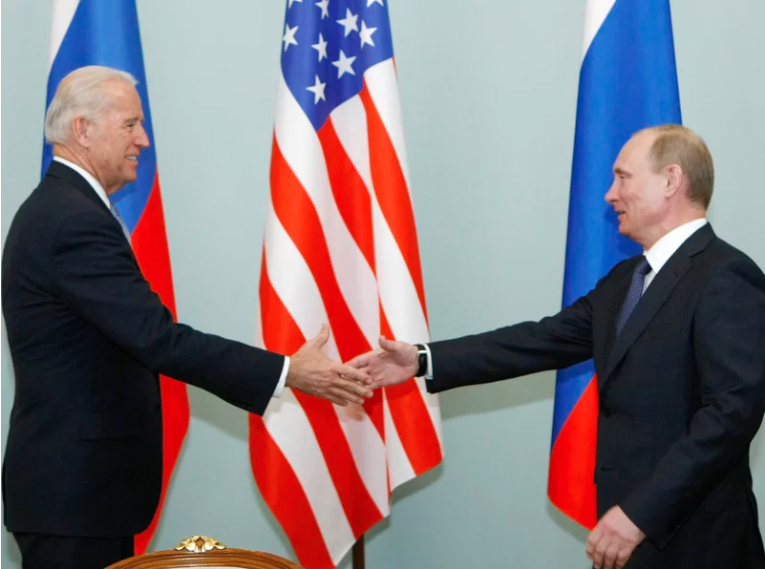
The Biden administration wants a more stable and predictable relationship with Russia. Russian President Vladimir Putin wants to show that his country is taken seriously as a world power. That is the backdrop for the first summit between the U.S. and Russian presidents, which will take place in Geneva on June 16.
"Russia is quite invested in having a very friction-filled rather than friction-free relationship with the United States," warns Fiona Hill of the Brookings Institution.
U.S.-Russian relations have been in a downward spiral since Russia's 2014 annexation of Crimea and its interference in the 2016 U.S. presidential election.
With recent ransomware attacks on U.S. companies, the poisoning and jailing of a leading opposition figure in Russia and Kremlin support for a brutal crackdown on protesters in Belarus, it's easy to see that the summit between Biden and Putin has a crowded agenda.
The expectation in Moscow is that President Biden will be much tougher on Russia than the Trump administration was, so the Kremlin views it as a positive sign that a summit is taking place so early in Biden's term.
The Kremlin reacted with outrage after Biden agreed in a March interview with ABC News' George Stephanopoulos that Putin is a "killer." Putin first challenged Biden to a public debate, and when Biden later proposed a summit, the Kremlin portrayed the White House as trying to make up for the remark.
The Kremlin and White House view the Geneva summit as a chance for the two presidents to map out how they will manage a difficult relationship over the next four years. Here are five things to keep an eye on as the U.S. and Russian leaders meet.
National Security Advisor Jake Sullivan says the U.S. is hoping that the two presidents will come out of the meeting with clear instructions to their teams on "strategic stability." Dmitry Peskov, the Kremlin spokesman, also uses that phrase, calling "strategic stability" the most important subject of the summit.











